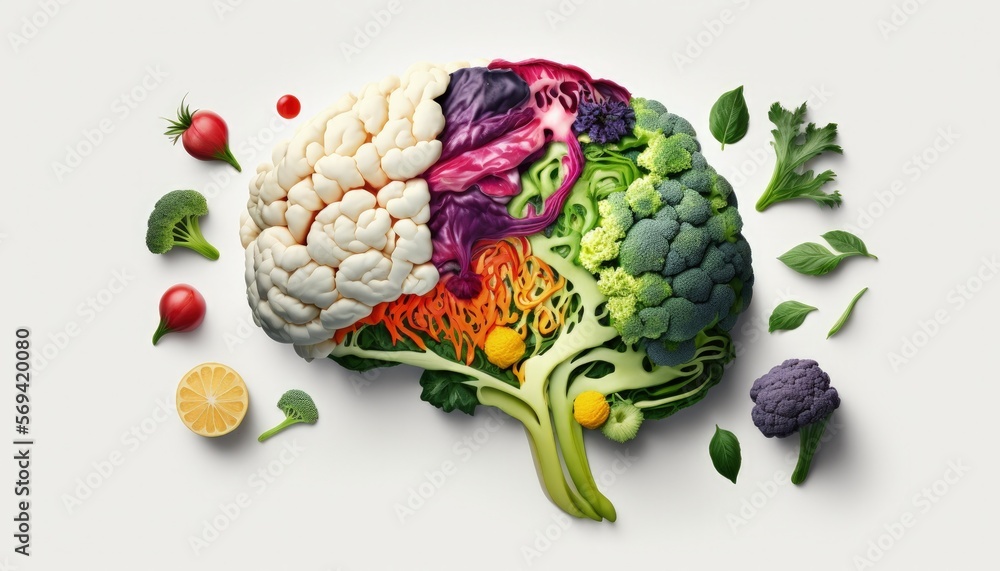Your brain is the control center of your entire body — it powers your thoughts, emotions, movements, and memory. Taking care of your brain health is not just about preventing diseases; it’s about keeping your mind strong, sharp, and active throughout life. As people live longer and face increasing mental stress, maintaining good brain health has become more important than ever.
In this article, we’ll explore how your daily habits, diet, and mindset can make a huge difference to your brain health. You’ll also learn practical tips that you can start following today to boost mental performance and emotional well-being.

Brain health refers to how well your brain functions across several key areas — thinking, learning, memory, emotion, and movement. A healthy brain allows you to stay focused, make decisions quickly, and maintain emotional balance. It also helps you stay resilient against age-related decline and mental disorders like anxiety or depression.
Your brain changes constantly through a process called neuroplasticity — it forms new connections and adapts to experiences. This means your actions today directly shape how your brain works tomorrow. Simple lifestyle choices such as regular exercise, a balanced diet, and good sleep can protect your brain cells and improve their efficiency.
Your daily habits play a major role in determining your brain health. Here are some of the most powerful lifestyle factors that influence it:
The brain uses about 20% of your body’s total energy. That means what you eat has a major impact on how your brain functions. Nutrient-rich foods like fatty fish, eggs, leafy greens, berries, nuts, and seeds are essential for maintaining healthy neurons. Omega-3 fatty acids, in particular, are crucial for brain cell communication and reducing inflammation.
Avoid excess sugar, processed foods, and trans fats — they can cause oxidative stress, which damages brain cells and impairs memory. Stay hydrated too, as even mild dehydration can affect concentration and mood.
Physical activity increases blood flow to the brain, delivering more oxygen and nutrients. It also stimulates the release of chemicals that encourage the growth of new brain cells. Studies show that people who engage in regular exercise — especially aerobic workouts like walking, swimming, or cycling — have better memory and learning abilities.
Sleep is when your brain repairs itself. During deep sleep, it clears out toxins that build up during the day and strengthens neural connections. Aim for 7–9 hours of quality sleep each night to support your brain health and emotional stability.
Your brain thrives on challenges. Activities like reading, learning a new language, solving puzzles, or playing a musical instrument help build new neural connections. Keeping your brain active delays cognitive decline and enhances creativity.
Chronic stress floods your brain with cortisol — a hormone that can damage nerve cells and impair memory. Techniques like meditation, deep breathing, yoga, and mindfulness can calm your mind and protect your brain from long-term harm.
Your mental and emotional health are deeply connected. Constant negativity, anxiety, or depression can alter brain chemistry and reduce cognitive performance. On the other hand, positive emotions boost serotonin and dopamine — “feel-good” chemicals that enhance motivation, learning, and overall brain health.
Spend time with loved ones, practice gratitude, and do things that bring you joy. Emotional balance keeps your brain flexible and adaptable.
Building better brain health doesn’t require drastic changes. Here are simple habits you can include in your daily routine:
These small steps can make a big difference over time.
As we age, some decline in brain function is natural, but it’s not inevitable. The brain can regenerate and stay active at any age. The key is to keep stimulating it through new experiences and learning opportunities. A combination of physical activity, mental exercise, and social interaction can significantly delay memory loss and maintain sharpness in later years.
For example, older adults who stay socially engaged tend to have better brain health than those who isolate themselves. Human connection plays a vital role in emotional stability and cognitive resilience.
Food is fuel for your brain. Here are some key nutrients that directly influence brain health:
For more brain health tips and natural lifestyle strategies, visit CogniSurge .
Humans are social beings. Engaging with others activates brain regions linked to memory, attention, and emotional processing. Having meaningful conversations, spending time with family, or joining community activities can help maintain strong mental function.
Social isolation, on the other hand, can increase the risk of depression and cognitive decline. Stay connected, reach out to friends, and make social interaction part of your brain care routine.
Pay attention to early signs of cognitive decline such as forgetfulness, confusion, difficulty focusing, or mood changes. These can sometimes indicate underlying issues that need attention. Early lifestyle adjustments can help improve brain health and prevent further decline.
Your brain health is shaped by everything you do — from the food you eat to the thoughts you think. By making mindful choices and nurturing both your body and mind, you can protect your brain’s power for years to come.
Take charge today. Eat right, move regularly, rest deeply, and stay mentally active. A healthy brain means a better quality of life, greater creativity, and stronger emotional well-being.
For more brain health advice and expert lifestyle guidance, visit CogniSurge .
This product is very helpful for this problem.